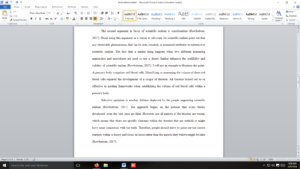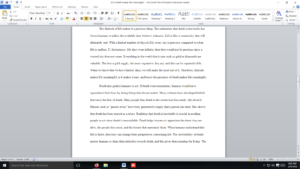Scientific Realism
It should be between 1000-1500 words.
Please select one question from the list below, and make sure to clearly state the question you are answering at the start of your essay.
Questions:
(1) What is the ‘Mary’ problem against physicalism, and how effective is it?
(2) What are philosophical zombies, and what problem are they meant to pose for physicalism? How plausible is the zombie argument?
(3) What is the argument from illusion, and how is it used to motivate indirect realism over direct realism? Is it effective?
(4) What is the problem of fiction, and how do you think one should respond to it?
(5) Can the B-series capture everything there is about the nature of time? If not, what does it leave out?
(6) What are abstract objects? Are there any?
(7) What is the most persuasive mereological account of the relationship between parts and wholes? Defend your answer.
(8) What is an indispensability argument? What problems do such arguments face?
(9) How should we demarcate genuine science from pseudo-science?
(10) Critically evaluate the merits of scientific realism by focusing on what you take to be either the strongest argument in its defense or the strongest argument against it.
(11) Why is there something rather than nothing?
(12) What is the problem of evil, and how compelling is it as an argument for God’s non-existence?
(13) Is it ever rational to have faith in God?
(14) Does immortality have any essential role to play in an account of the meaning of life?
(15) Is death necessary for one’s life to be meaningful?
(16) If all that exists is the natural world, then can life ever be meaningful?
Answer preview
Settling on a uniform definition of scientific realism has so far proven to be challenging, with people often attaching different meanings to it (Luk, 2019). Despite all the various definitions, there is a core set of ideals espoused in any definition given. They revolve around the fact that the theoretical terms people come across in physical theories are mind-independent and unobservable entities. Scientific realism steers clear of canvassing the distinction between observables and non-observables (Luk, 2019). Some define it as the truthful or almost truthful aspects of scientific theories. Others look at it as the successful application of theoretical terms in the actual world.
[1152 Words]

Scientific Realism

 Do not forget the Works Cited page. You can use
Do not forget the Works Cited page. You can use 

